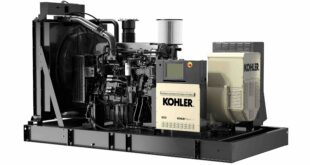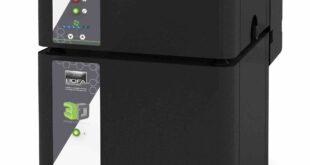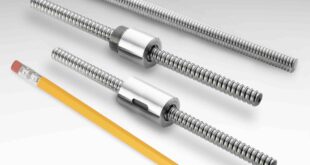The leak detection rate for in-line pharmaceutical gas analysis during inhaler production has increased by 30 times following the introduction of a new automated quality control solution.
The robotised system for Metered Dose Inhaler (MDI) manufacture built by Optimal Industrial Automation means significantly reduced cost and wastage in quality control for MDI manufacture.
It’s essential that MDI canisters, typically used in asthma type inhalers, are produced with an optimum level of gas propellant, but effective leak testing has traditionally been problematic. The MDI manufacturer’s objective was to implement 100% quality assurance of all cans while reducing cost and wastage.
The company selected Optimal Industrial Automation to design a system.
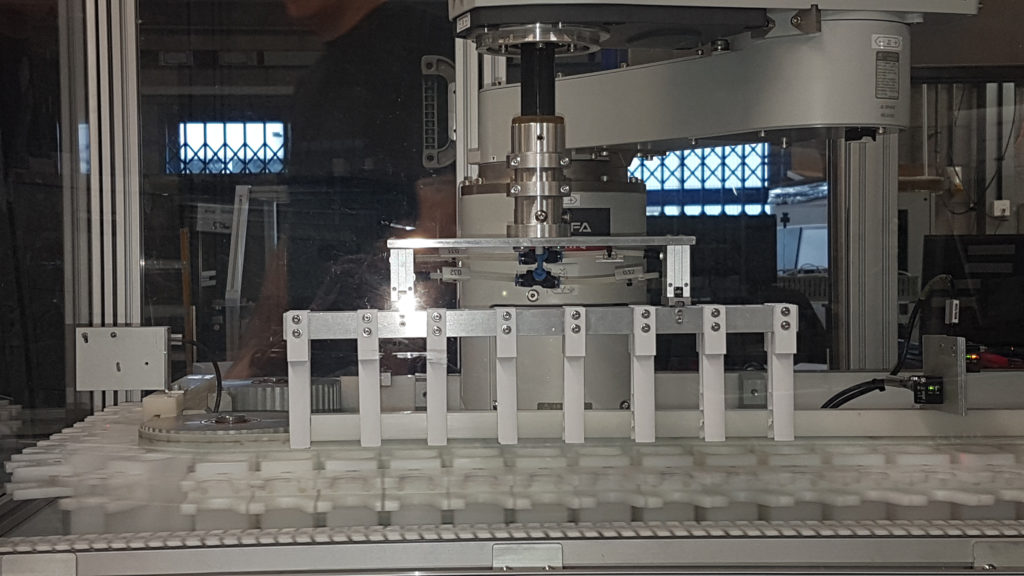
Optimal’s track record in resolving complex challenges with a range of high-profile brands within the pharmaceutical, chemical and food and beverage industries provided the confidence that an ideal solution could be found.
Manufactured in vast volumes, MDI canisters are traditionally batch tested. The challenge for the manufacturer is that if a single canister is defective, the entire batch may be scrapped. This means potentially high wastage, increased cost and reduced efficiency of production. Instead, the manufacturer’s objective was to achieve testing of 100% of canisters, meaning scrappage of only individually rejected MDIs. This was achieved thanks to Optimal’s design of a puck, robot and conveyor system with an integrated gas analyser.
The pick and place action and synchronisation was provided by SCARA robots, a PLC and SCADA software from Mitsubishi Electric.
“The application demands a high degree of accuracy to achieve the synchronisation required for a throughput of 180 cans per minute,” says Martin Gadsby, Director, Optimal Industrial Automation. “Reliability has been confirmed through extensive testing and we are now able to identify and reject individual canisters in a continuous process situation. This means significantly less wastage in manufacture and ultimately a reduced cost of production.”
Optimal’s system runs on its own communication sub-net but communicates process flow signals both up and downstream. Taking MDI canisters from an upstream external conveyor, it moves them onto an infeed conveyor with upstream machine monitoring and queue control ensuring synchronisation.
MDIs are then picked and placed into individual pucks, six at a time and transported on a constant speed carousel conveyor, with queue control maintaining back pressure to prevent misfeeds. If required, fallen canister detection will signal an alarm for operator intervention.
Accuracy and repeatability are critical to ensure speed and reliability of operation, carried out by two, four-axis Mitsubishi Electric’s RH6 SCARA pick and place robots; one operating infeed of the puck contained MDIs, the other the outfeed. The robots are controlled by a high-end Mitsubishi Electric’s Q Series PLC.
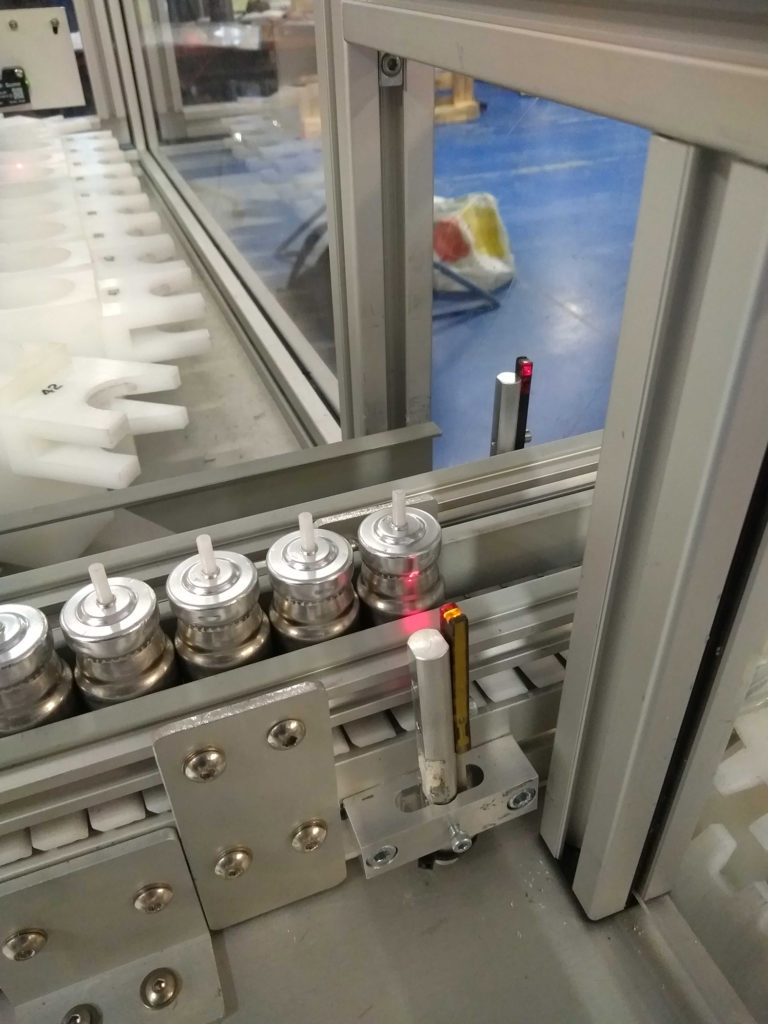
Steve Kirby, Key Account Manager at Mitsubishi Electric, adds: “To meet the high levels of accuracy required by the system, we put together a highly integrated suite of high-performance components.”
The carousel conveyor transports the pucks through a gas analyser system tunnel, containing a Cascade CT300 gas leak detector, also controlled by the PLC. Immediately before entering the tunnel, air around the MDI cannister is purged, with the pucks then individually sealed.
“The location of the individual MDI canister is identified before the gas analyser removes a sample from the puck to measure any propellant gas leakage. Extremely low gas leak rates have been proven to be reliably detected.
“Speed and accuracy of integrated communication is vital, where the result is communicated by dedicated active digital signal to an industrial PC running Mitsubishi Electric’s MAPS SCADA software, which analyses the data.
The status of the individual MDI test is logged by the PLC. The MDIs are then removed from the pucks by the robot to a constant speed outfeed conveyor, with their location tracked. Exacting synchronisation by the robot is necessary to ensure accurate placement of the MDIs, but in the unlikely event, fallen canister detection also features. MDIs with identified leakage are removed at a reject station on the outfeed conveyor and collected in a reject bin with level detection. The volume of canisters which ‘pass’ is monitored as well as the number of rejects, with an alarm in the event of an excessive reject quantity.
Full downstream machine monitoring enables smooth flow of returning MDIs, with optional downstream queue switch to prevent build-back onto the production conveyor. Controls for temporary buffer storage via a rotary table are also available. The resulting throughput is 180 canisters per minute. Mitsubishi Electric’s MAPS also produces an exportable report of canister analytical data for each batch, stored in an SQL database, accessed via the IPC’s touchscreen display.
 Engineer News Network The ultimate online news and information resource for today’s engineer
Engineer News Network The ultimate online news and information resource for today’s engineer


